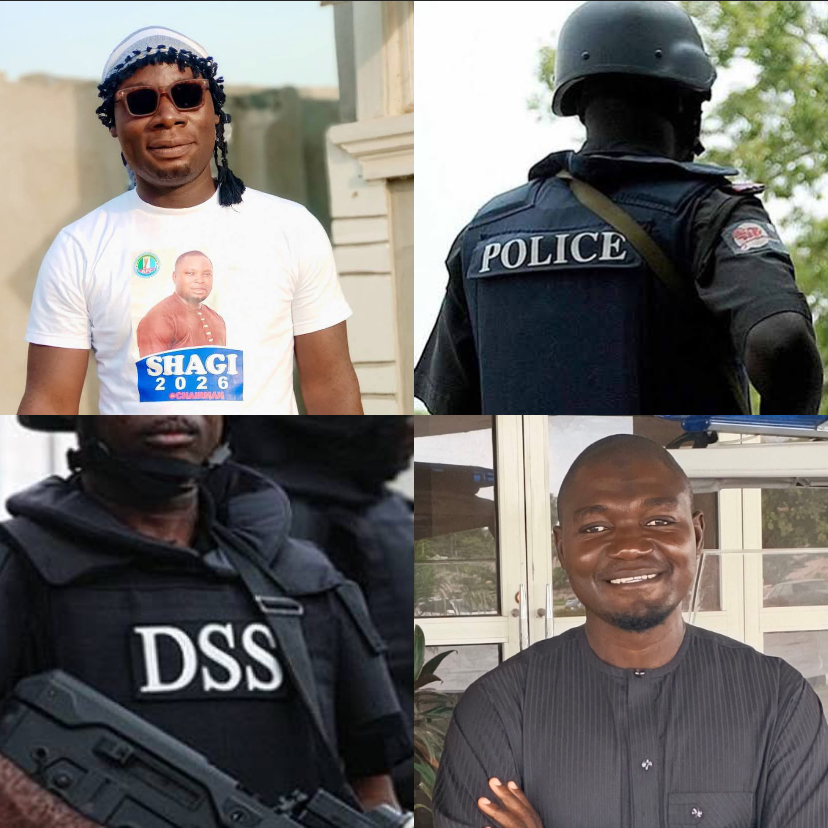
The political atmosphere in Gwagwalada, Abuja, took a new twist today as the Gwagwalada Police Division officially invited indigenous freedom advocate, Comrade Adamu Muhammad, widely known across the Federal Capital Territory (FCT) and beyond by his sobriquet Dobiza Dobiza.
The outspoken activist, who has been vocal on issues of indigenous rights and political equity in the FCT, confirmed the invitation himself in a viral video posted on manutd crownprince Facebook page earlier this evening. In the video, Dobiza struck a tone of calm confidence, stating:
“You see as we dey so, everything don set. I been don go work sha but tomorrow by the grace of God I go lap the invite. And by the grace of God I will come out. I dey clean, I dey clear—I didn’t steal anything from anybody and I didn’t owe anybody. So any invite they invite me, I no get shaking and we no get shaking. And if na cyberspace matter we dey, no dulling—men mount.”
His remarks, laced with the usual street resilience that has made him popular among grassroots communities, sparked immediate online reactions and speculations about the real reasons behind the police invitation.
The development comes only hours after another Gwagwalada native, Muhammad Isa Hassan, was reportedly invited by the Department of State Services (DSS) over allegations of inciting political violence. Sources within the political circles alleged that Isa Hassan’s troubles stem from his outspoken rejection of the emergence of Hon. Usman Yahaya, the All Progressives Congress (APC) consensus candidate for the forthcoming elections.
Usman Yahaya, a Fulani man from Kano State, is said to have been “imposed” as the APC’s flag bearer through the influence of former APC National Chairman, Dr. Abdullahi Umar Ganduje, a close relative. His emergence has sparked fierce resistance from indigenous groups and activists who argue that the people of the FCT have long been sidelined from critical political positions such as the Senate and ministerial seats.
Now, with the local government chairmanship—regarded as the heartbeat of community governance—being handed to a “non-indigene,” critics like Dobiza believe the last thread of indigenous representation is under threat.
For months, Comrade Dobiza has consistently voiced his opposition to Yahaya’s candidacy, insisting that Gwagwalada and the wider indigenous population of the FCT deserve better. His argument rests on the principle of political equity: that Abuja, despite hosting the seat of power, remains neglected when it comes to federal appointments and elective offices.
According to him, the current move is not just political marginalization but an outright gamble with the future of the FCT’s indigenous communities. This agitation has gained momentum among youths, women, and traditional leaders, fueling a debate that has spread far beyond the boundaries of Gwagwalada.
Many analysts believe that Dobiza’s invitation is politically motivated, a move designed to silence dissenting voices ahead of the election. Others speculate that the case may be linked to activities on the “cyberspace,” referring to the increasing use of social media by activists to mobilize and challenge political structures.
The big question remains: Is the police acting on credible allegations or is this another attempt at intimidation of indigenous voices?
For now, Dobiza remains defiant. His scheduled visit to the police station tomorrow promises to be a defining moment in the unfolding political drama. Will the police clarify their reasons, or will this deepen the already boiling suspicion that indigenous advocates are being selectively targeted for their stance against Usman Yahaya’s candidacy?
Observers note that this incident could mark a turning point in the indigenous political awakening across the FCT. The struggle for recognition, equity, and fair representation has long been simmering, but recent developments in Gwagwalada may transform it into a full-scale movement.
Whether Dobiza walks out tomorrow as he promised “clean and clear,” or whether new allegations will emerge, one fact is undeniable: the political battle for the soul of Gwagwalada is now at the center of national attention.
Chronicles Reporters will continue to monitor and update readers as this story develops.